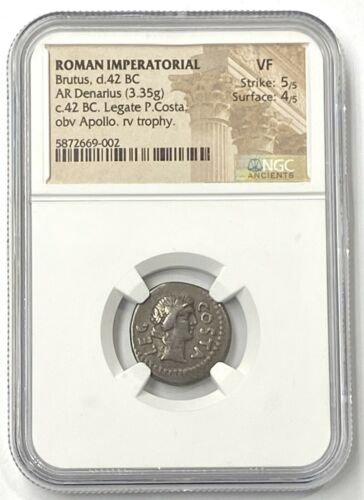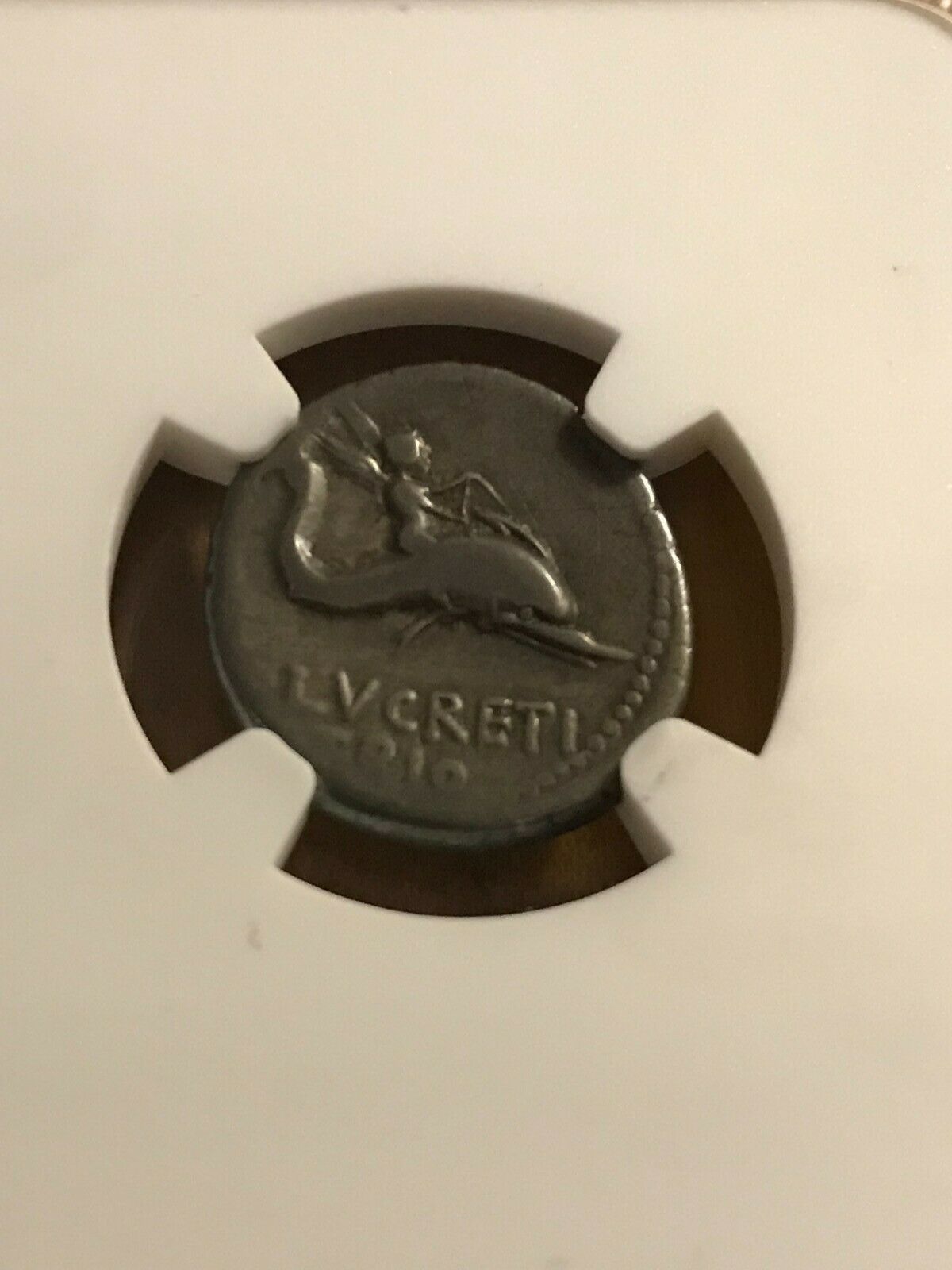-40%
Brutus 42 BC Silver Denarius NGC VF The Famous Julius Caesar Assassin
$ 1419.51
- Description
- Size Guide
Description
Brutus 42 BC Silver Denarius NGC VF The Famous Julius Caesar Assassin.Famous Assassin In History Brutus 42 BC Silver Denarius NGC VF Delivered the final fatal stab wound to Julius Caesar
Marcus Junius Brutus, perhaps the most famous assassin known to history. Was descended from a long line of distinguished Roman Republican ancestors.
Q Servilius Caepio Brutus (M. Junius Brutus, assassin of Caesar).
Silver Denarius, moving military mint in Asia Minor, c. 43-42 BC.
Obverse: COSTA – LEG, laureate head of Apollo facing right.
Reverse: IMP BRVTVS, military trophy holding pilae and scutum.NGC Very Fine. Strike 5/5 Surface 4/5 Attractive iridescent toning. Scarce.
This silver denarius of Brutus, struck at a moving mint during the civil war which erupted following the murder of Caesar (in which Brutus wielded a knife), shows a distinct shift from the ideals of freedom and liberty promoted by many of his earlier coins. Notably military in nature, the obverse depicts Apollo, with an inscription noting the military Legate responsible for the coin’s production. The reverse focuses on a military trophy of mail armour, shield, spears and graves, and proclaims Brutus as Imperator. Various other designs were issued by Brutus and Cassius to pay their forces, but it would seem this issue was struck specifically to appeal to the soldiers.
Assassination of Julius Caesar
In 44 BC Brutus came under the strong influence of Cassius, bitter enemy of Caesar. Brutus then became a leader in the group of irreconcilable nobles in a assassination plot against Julius Caesar. The assassins surrounded Caesar in the Senate chambers on March 15th 44BC on the Ides of March. Cassius was first to stab Caesar in the neck, with Brutus delivering the final fatal wound.
In the end, Brutus and Cassius were defeated by the combined forces of Marc Antony and Octavian in 43 BC. All hopes for a renewed Republic ended with this epic battle fought over two days. It would take about another fifteen years, but the empire eventually took shape under Octavian (renamed Augustus in 27 BC) after he defeated his former ally Antony at the battle of Actium in 31 BC.














